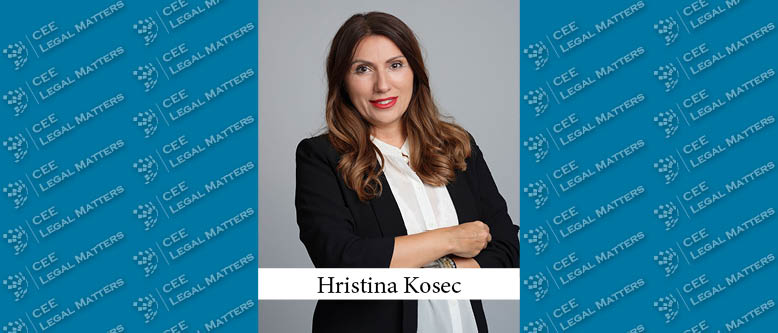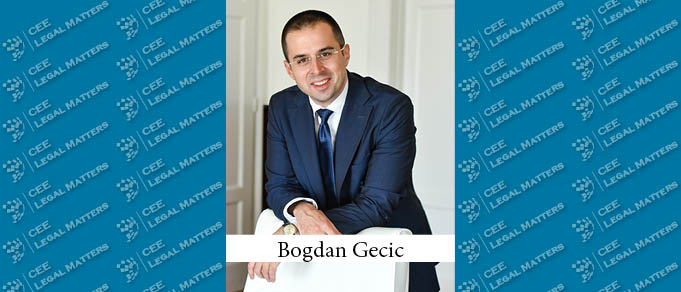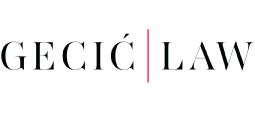5G is the fifth-generation mobile network, which promises to lead to a revolution, particularly in transportation. This article focuses on connected and automated mobility (CAM), an offspring of 5G. CAM lets vehicles communicate with each other and with the surrounding infrastructure. Such communication can, in fact, enhance road safety, ease traffic jams, and cut CO2 emissions. With this in mind, countries worldwide are diligently working on developing 5G cross-border corridors.
Serbia: Amendments to the Serbian Act on Electronic Communications
Recently, the Serbian Parliament enacted amendments to the Act on Electronic Communications (Act). The Act was drafted through a collaborative effort of representatives from a broad range of organizations, including the Regulatory Agency for Electronic Communications and Postal Services (RATEL), the Regulatory Agency for Electronic Media (REM), the National Alliance for Local Economic Development (NALED), the Foreign Investors Council, the National Convention on the European Union, supplemented by expert opinions from the business sector.
Gecic Law and RPHS Law Successful for MTS in Telecommunications Dispute in Kosovo
Gecic Law, working with Deloitte Legal and RPHS Law, has advised MTS on a dispute with Pristina authorities stemming from the decision to revoke MTS’s operating license in Kosovo.
Serbia's Improved FDI and Energy Prospects: A Buzz Interview with Hristina Kosec of Gecic Law
Serbia is experiencing positive economic growth driven by strong foreign direct investments, while developing a growing focus on energy security and the transition to renewable energy sources, according to Gecic Law Partner Hristina Kosec.
Class Action in the USA and Its Prospects in Serbia – Part II
In the previous article, we became familiar with the class action. This legal institute originated from Anglo-Saxon law, and many countries use it, primarily the USA. In this article, we will consider the introduction of a similar institute into the legal system of the Republic of Serbia from the perspective of de lege ferenda.
Rethinking the Role and Power of Class Actions in Serbia
In recent years, the rise of mass lawsuits has placed a significant strain on Serbian courts. The most notable mass lawsuits, which first emerged in the mid-2000s, encompass a wide range of issues, from shift and night work disputes to overcharged fees for children’s daycare and discrimination against war veterans. Recent prominent cases have involved the nullity of loan agreement provisions on application-processing costs and auxiliary school staff’s entitlement to compensation for warm meals and holiday allowances. The rise of mass lawsuits carries profound legal and economic implications, sparking renewed initiatives for class action in Serbia.
The Ops Partner: Gecic Law’s Head of Operations Hristina Kosec Makes Partner
In a move that might appear unconventional for CEE legal markets, Belgrade-based law firm Gecic Law elevated its Head of Operations Hristina Kosec to Partnership. While a lawyer by education, Kosec’s career up to this point has not exactly been a typical lawyer’s one.
The Barbenheimer Phenomenon
This year, the internet has been captivated by a sensation known as “Barbenheimer,” a phenomenon that emerged just before the blockbuster film releases of “Barbie” and “Oppenheimer.” Having previously explored the Barbie intellectual property (IP) landscape, it’s astonishing to find yet another connection between these two cinematic sensations that stand at opposite ends of the IP spectrum.
Digital Services Act Takes Effect on Large Platforms
August 25, 2023, marks a monumental shift as the Digital Services Act (“DSA“) takes center stage, impacting industry giants like Amazon, Google, Apple, and TikTok. With 19 platforms and search engines, each having a minimum of 45 million users, the DSA takes action to uphold data privacy, combat disinformation, and eliminate online hate speech. This dynamic legislation aims to give users, including minors, enhanced rights and control over their online presence, fostering a high level of privacy and security.
EU’s Carbon Border Adjustment Mechanism: Key Considerations for Non-EU Producers and Importers
The European Union has initiated the world’s first carbon border tax, known as the Carbon Border Adjustment Mechanism (CBAM), in a strategic move to tackle the mounting concerns of climate change.
Leveraging Intellectual Property: Unraveling the Success Story of Barbie’s Brand Evolution
Since the release of the Barbie movie, there’s been an unmistakable global buzz. Beyond film, it has driven sales across a spectrum of Barbie merchandise, from costumes and makeup to beverages and even a rentable Barbie dreamhouse. The success of the Barbie movie, dolls, and brand hinges on Mattel’s very prudent approach to protecting their intellectual property rights.
Green Transition: How close is Western Balkans to the EU Emissions Trading System?
As we previously reported, the pivotal Energy Community Ministerial Meeting held in Tepelenë, Albania, in June signaled potential developments in green energy and decarbonisation in the Western Balkans (WB).
EU-U.S. Data Privacy Framework: A New Adequacy Decision for Transatlantic Data Flows
On July 10, 2023, the European Commission (“Commission“) adopted its adequacy decision for the EU-U.S. Data Privacy Framework (“DPF”). The decision concludes that the United States (“US”) ensures an adequate level of data protection – comparable to that of the European Union (“EU“).
AI in Agriculture: Navigating Liability and Regulation
The world’s population is on the rise, increasing the demand for food. The United Nations estimates that the world population will reach 9 billion people in approximately 15 years; by 2050, it is expected to reach 10 billion people. This means there will be an additional two billion people to feed, necessitating farming and food production to become more efficient.
From Collective Rights to Individual Justice: Class Action in the USA and Its Prospects in Serbia
On July 4, the United States celebrated Independence Day, which reminded us of the Declaration of Independence from 1776 that marked the establishment of the United States. This prompted us to reflect on the numerous distinctive legal achievements of the United States, inspiring us to explore the phenomenon of class action. Originating from across the Atlantic, this legal institution has found its place in continental European jurisdictions, sparking discussions within the professional community about its potential incorporation into Serbia’s legal framework.
CK Telecoms Judgment: Revisiting Errors and Pursuing Clarity
As we previously announced, the Court of Justice of the European Union (“CJEU”) issued a ruling in the CK Telecoms case last week, annulling the CK Telecoms judgment and referring the case back to the General Court (“Court”). This appeal was in response to the Court’s decision on May 28, 2020, invalidating the European Commission’s (“EC“) ban on the acquisition of Telefonica Europe Plc by Hutchison 3G UK Investments Ltd. In this article, we delve deeper into the background of this important case and the reasoning behind the CJEU ruling.
Advancing Sustainability and Circular Economy: New European Regulation on Batteries and Waste Batteries
On July 10, 2023, the Council of the European Union (“Council”) officially adopted the Regulation of the European Parliament and of the Council concerning batteries and waste batteries (“Regulation”). This Regulation covers the entire battery life cycle, from production to reuse and recycling, aiming explicitly at safety, sustainability, and enhancing competitiveness.
EU’s Foreign Subsidies Regulation Starts to Apply
The Foreign Subsidies Regulation (FSR), one of the EU’s latest state aid instruments, entered into force on January 12, 2023. Now, after six months, it starts to apply. This regulation establishes rules to govern foreign subsidies that could distort the EU’s internal market. It empowers the European Commission (“Commission”) to investigate financial contributions provided by non-EU countries to companies operating in the EU. If these contributions are found to be distortive subsidies, the Commission can enforce corrective measures to remedy these effects.
















